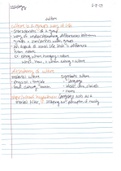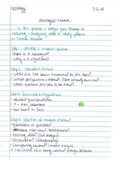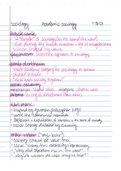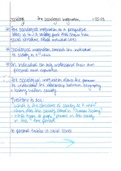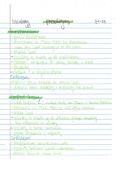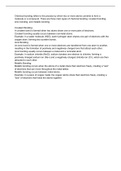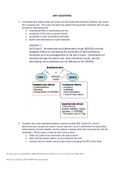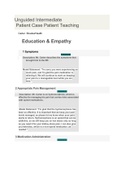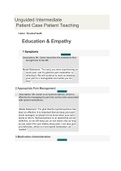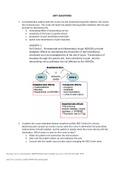Mchenry County College
Latest uploads at Mchenry County College. Looking for notes at Mchenry County College? We have lots of notes, study guides and study notes available for your school.
-
115
- 0
-
4
All courses for Mchenry County College
- NURSE 220 Asthma Exasterbation Results GABRIEL MARTINEZ 1
- NURSE 220 NURSE220 41
- NURSE 220 Basic Patient Case Results John Larsen ShadowHealth 1
- NURSE 220 Complex Patient Case ResultS Doris Turner ShadowHealth 1
- NURSE 220 Complex Patient Case Results Dorris Turner shadow health 1
- NURSE 220 Intermediate Patient Case Results Edward Carter ShadowHealth 1
- NURSE 220 Unguided Intermediate Patient Case Results Edward carter shadow health 1
- NURSE 220ShadowHealth Asthma Exacerbation Results 1
Latest notes & summaries Mchenry County College
Introduction to Sociology at McHenry County College taught by Mike Reagan. These notes cover the topic of culture. Specifically, what it is and how it influences others. 1 page long. Notes taken February 8th, 2023.
Introduction to Sociology at McHenry County College taught by Mike Reagan. These notes cover the topic of sociological research. Specifically, the research process, correlation relationships, and variables. 3 pages long. Notes taken February 6th, 2023.
Introduction to Sociology at McHenry County College taught by Mike Reagan. These notes cover the topic of academic sociology. Specifically, the works of Auguste Comte, Emile Durkheim, Karl Marx, and other founding sociologists. 1 1/2 pages long. Notes taken January 30th, 2023.
Introduction to Sociology at McHenry County College taught by Mike Reagan. These notes cover the topic of the sociological imagination. Specifically, what it is and its benefits. 1 1/2 pages long. Notes taken January 25th, 2023.
Introduction to Sociology at McHenry County College taught by Mike Reagan. These notes cover the topic of sociological paradigms. Specifically, functionalism, conflict theory, and symbolic interaction. 3 pages long. Notes taken February 1st, 2023.
This includes notes and examples from molecular structures, chemical bonding, chemical reactions, intermolecular forces, solutions, state of matter, and stoichiometry
UNIT QUESTIONS 1. A postoperative patient asks the nurse how the prescribed ibuprofen (Motrin) will control the incisional pain. The nurse will teach the patient that ibuprofen interferes with the pain process by decreasing the a. modulating effect of descending nerves. b. sensitivity of the brain to painful stimuli. c. production of pain-sensitizing chemicals. d. spinal cord transmission of pain impulses. ANSWER: C RATIONALE: Nonsteroidal anti-inflammatory drugs (NSAIDs) provide analg...
Education & Empathy 1 Symptoms Followed Up Description: Mr. Carter describes the symptoms that brought him to the ER. Model Statement: "I'm sorry you were experiencing so much pain, and I'm glad the pain medication is relieving it. We will continue to work on keeping your pain to a manageable level while you are here." 2 Appropriate Pain Management Followed Up Description: Mr. Carter is on hydromorphone, which is effective for managing his pain but carries risks associated w...
Education & Empathy 1 Symptoms Followed Up Description: Mr. Carter describes the symptoms that brought him to the ER. Model Statement: "I'm sorry you were experiencing so much pain, and I'm glad the pain medication is relieving it. We will continue to work on keeping your pain to a manageable level while you are here." 2 Appropriate Pain Management Followed Up Description: Mr. Carter is on hydromorphone, which is effective for managing his pain but carries risks associated w...
UNIT QUESTIONS 1. A postoperative patient asks the nurse how the prescribed ibuprofen (Motrin) will control the incisional pain. The nurse will teach the patient that ibuprofen interferes with the pain process by decreasing the a. modulating effect of descending nerves. b. sensitivity of the brain to painful stimuli. c. production of pain-sensitizing chemicals. d. spinal cord transmission of pain impulses. ANSWER: C RATIONALE: Nonsteroidal anti-inflammatory drugs (NSAIDs) provide analg...

